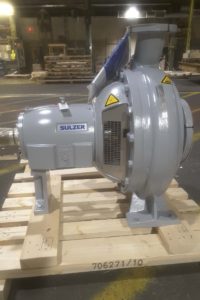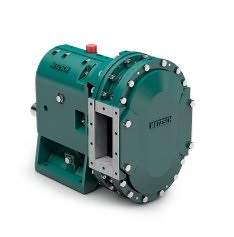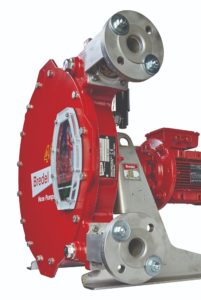Peristaltic Pumps Well Worth Their Salt
One of the advantages of the British made Verderflex hose pump is its immunity to the detrimental effects of handling high solid content and abrasive substances.
Whilst other pump designs become subject to costly maintenance and part replacement, Verderflex peristaltic hose pump users can enjoy trouble-free production and low running costs.
One customer to benefit was a Spanish salt producer. When this company expanded its production in 2009, it chose to install a range of Verderflex peristaltic pumps to enhance its process.
Although salt is the primary product, the raw material from which it is extracted also contains silica as well as mud and other minerals. These sodium silicates have a wide use, from food preservations and water treatment through to automotive engine repair and fire protection. Once excavated from the hills surrounding the plant the raw material is combined with water in a mixing vessel to dissolve the salt.
The cocktail of salt water, silica slurry and mud is transferred to a decanting system for separation, where a Verderflex VF65 hose pump is responsible for transferring the highly abrasive silica slurry to a storage tank.
Abrasion is not a limiting factor for Verderflex peristaltic pumps mainly because they have no seals or valves that come into contact with the liquid being pumped. The silica slurry is entirely contained within the natural rubber hose, which is specifically designed to reduce fatigue and provide a long service life. The hose is the only wearing part and is quick and easy to replace, keeping downtime to a minimum.
Hoses in peristaltic pumps generally fail due to fatigue between the rubber layers and the reinforcement. The superior production process employed by Verderflex ensures exact wall thickness and outer diameter tolerances are maintained at every point without the need for exterior machining. The textured surface of the hose actually creates micropockets of lubrication which promotes even lubricant coverage and further extends hose life.
Two further Verderflex pumps – a VF40 and VF65 – are employed to transfer the mud slurry to a filter press for de-watering. The salt water is then subjected to further filtration to remove more impurities. After evaporation, crystallisation, granulation and forming, the salt emerges from the process line as extra-high purity pellets.
Source: Verder Deutschland GmbH & Co. KG






